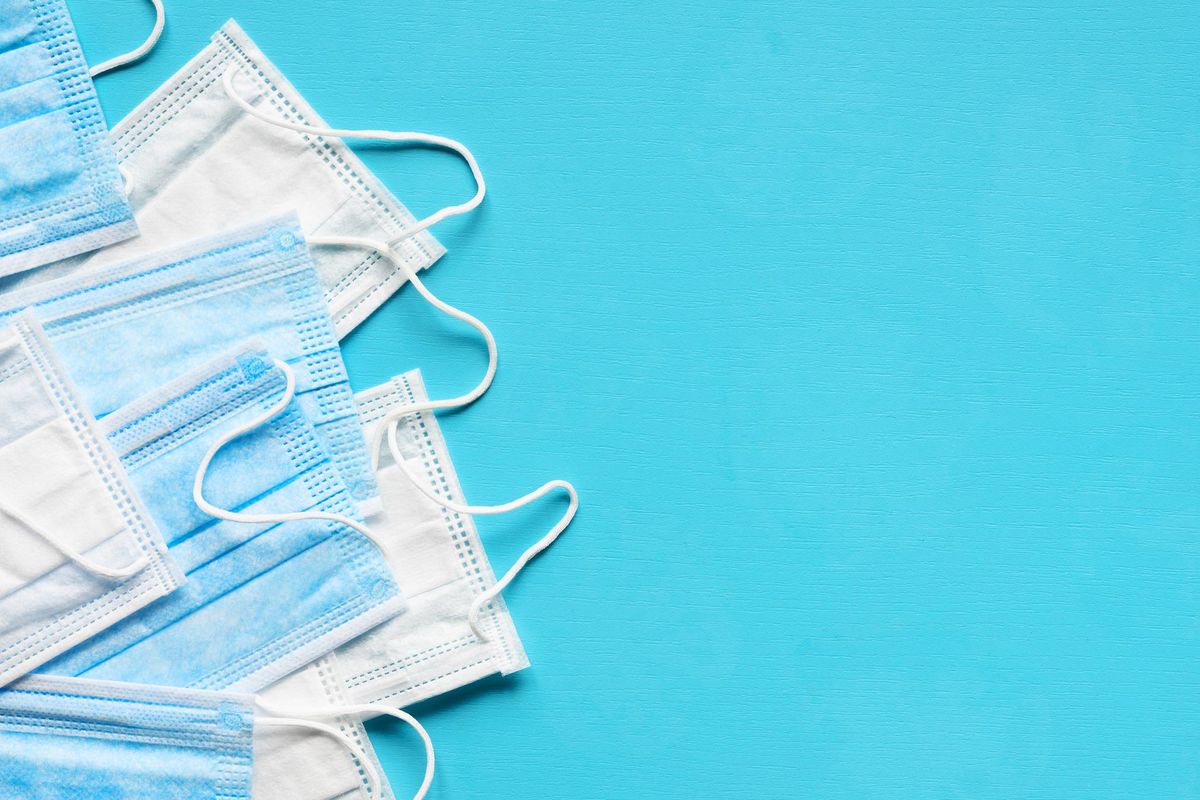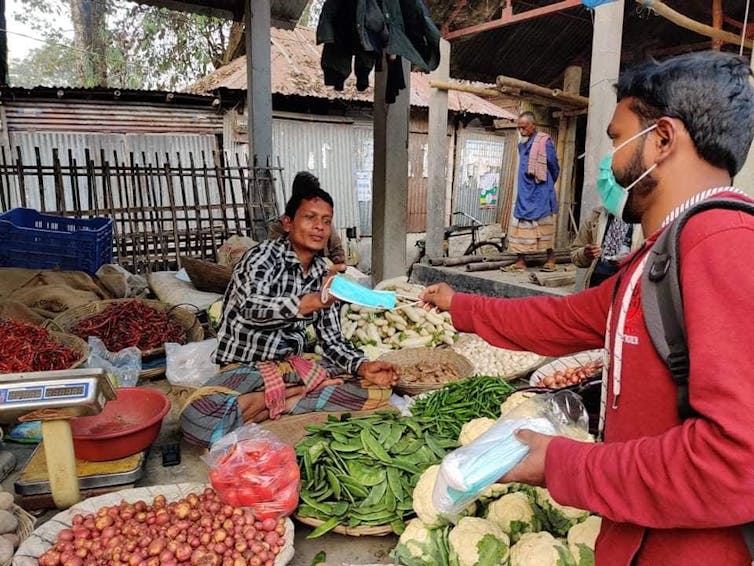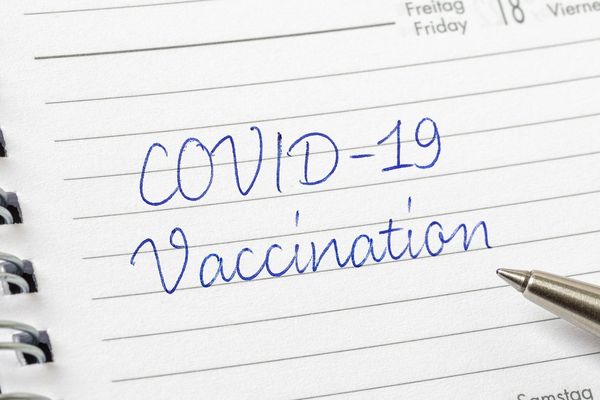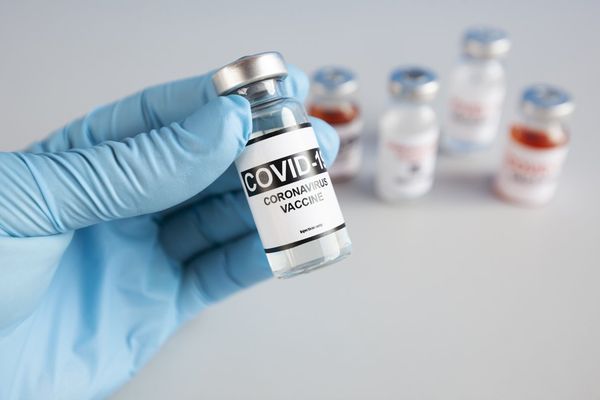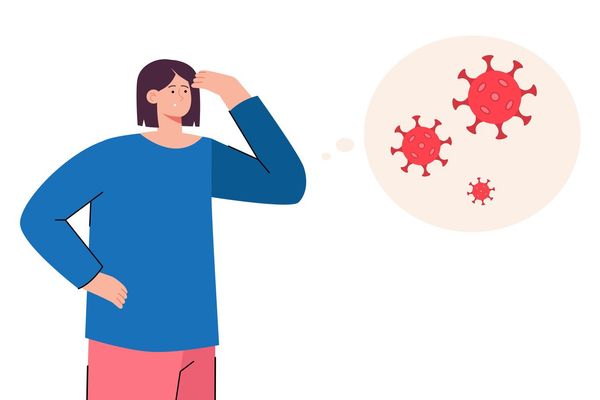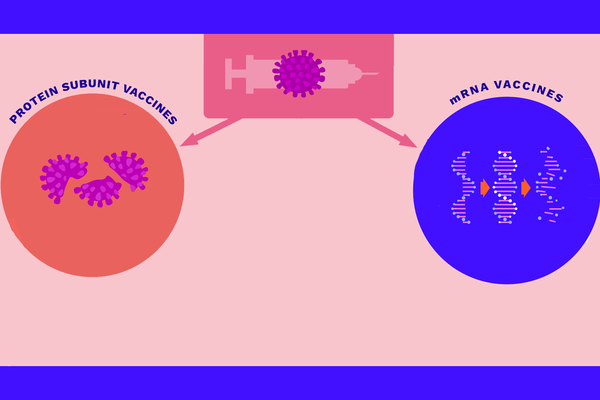By Laura (Layla) H. Kwong, University of California, Berkeley
Do masks work? And if so, should you reach for an N95, a surgical mask, a cloth mask or a gaiter?
Over the past year and a half, researchers have produced a lot of laboratory, model-based and observational evidence on the effectiveness of masks. For many people it has understandably been hard to keep track of what works and what doesn't.
I'm an assistant professor of environmental health sciences. I, too, have wondered about the answers to these questions, and earlier this year I led a study that examined the research about which materials are best.
Recently, I was part of the largest randomized controlled trial to date testing the effectiveness of mask-wearing. The study has yet to be peer reviewed but has been well received by the medical community. What we found provides gold-standard evidence that confirms previous research: Wearing masks, particularly surgical masks, prevents COVID-19.
Laboratory studies help scientists understand the physics of masks and spread.
Lab and observational studies
People have been using masks to protect themselves from contracting diseases since the Manchurian outbreak of plague in 1910.
During the coronavirus pandemic, the focus has been on masks as a way of preventing infected persons from contaminating the air around them – called source control. Recent laboratory evidence supports this idea. In April 2020, researchers showed that people infected with a coronavirus – but not SARS-CoV-2 – exhaled less coronavirus RNA into the air around them if they wore a mask. A number of additional laboratory studies have also supported the efficacy of masks.
Out in the real world, many epidemiologists have examined the impact of masking and mask policies to see if masks help slow the spread of COVID-19. One observational study – meaning it was not a controlled study with people wearing or not wearing masks – published in late 2020 looked at demographics, testing, lockdowns and mask-wearing in 196 countries. The researchers found that after controlling for other factors, countries with cultural norms or policies that supported mask-wearing saw weekly per capita coronavirus mortality increase 16% during outbreaks, compared with a 62% weekly increase in countries without mask-wearing norms.
Researchers gave surgical masks to adults in 200 villages in Bangladesh to test whether they reduce COVID-19.
Innovations for Poverty Action, CC BY-ND
Large-scale randomized mask-wearing
Laboratory, observational and modeling studies, have consistently supported the value of many types of masks. But these approaches are not as strong as large-scale randomized controlled trials among the general public, which compare groups after the intervention has been implemented in some randomly selected groups and not implemented in comparison groups. One such study done in Denmark in early 2020 was inconclusive, but it was relatively small and relied on participants to self-report mask-wearing.
From November 2020 to April 2021, my colleagues Jason Abaluck, Ahmed Mushfiq Mobarak, Stephen P. Luby, Ashley Styczynski and I – in close collaboration with partners in the Bangladeshi government and the research nonprofit Innovations for Poverty Action – conducted a large-scale randomized controlled trial on masking in Bangladesh. Our goals were to learn the best ways to increase mask-wearing without a mandate, understand the effect of mask-wearing on COVID-19, and compare cloth masks and surgical masks.
The study involved 341,126 adults in 600 villages in rural Bangladesh. In 300 villages we did not promote masks, and people continued wearing masks, or not, as they had before. In 200 villages we promoted the use of surgical masks, and in 100 villages we promoted cloth masks, testing a number of different outreach strategies in each group.
Over the course of eight weeks, our team distributed free masks to each adult in the mask groups at their homes, provided information about the risks of COVID-19 and the value of mask-wearing. We also worked with community and religious leaders to model and promote mask-wearing and hired staff to walk around the village and politely ask people who were not wearing a mask to put one on. Plainclothes staff recorded whether people wore masks properly over their mouth and nose, improperly or not at all.
Both five weeks and nine weeks after starting the study, we collected data from all adults on symptoms of COVID-19 during the study period. If a person reported any symptoms of COVID-19, we took and tested a blood sample for evidence of infection.
Mask-wearing reduced COVID-19
The first question my colleagues and I needed to answer was whether our efforts led to increased mask-wearing. Mask usage more than tripled, from 13% in the group that wasn't given masks to 42% in the group that was. Interestingly, physical distancing also increased by 5% in the villages where we promoted masks.
In the 300 villages where we distributed any type of mask, we saw a 9% reduction in COVID-19 compared with villages where we did not promote masks. Because of the small number of villages where we promoted cloth masks, we were not able to tell whether cloth or surgical masks were better at reducing COVID-19.
We did have a large enough sample size to determine that in villages where we distributed surgical masks, COVID-19 fell by 12%. In those villages COVID-19 fell by 35% for people 60 years and older and 23% for people 50-60 years old. When looking at COVID-19-like symptoms we found that both surgical and cloth masks resulted in a 12% reduction.
The body of evidence supports masks
Before this study there was a lack of gold-standard evidence on the effectiveness of masks to reduce COVID-19 in daily life. Our study provides strong real-world evidence that surgical masks reduce COVID-19, particularly for older adults who face higher rates of death and disability if they get infected.
Policymakers and public health officials now have evidence from laboratories, models, observations and real-world trials that support mask-wearing to reduce respiratory diseases, including COVID-19. Given that COVID-19 can so easily spread from person to person, if more people wear masks the benefits increase.
So next time you are wondering if you should wear a mask, the answer is yes. Cloth masks are likely better than nothing, but high-quality surgical masks or masks with even higher filtration efficiency and better fit – such as KF94s, KN95s and N95s – are the most effective at preventing COVID-19.![]()
Laura (Layla) H. Kwong, Assistant Professor of Environmental Health Sciences, University of California, Berkeley
This article is republished from The Conversation under a Creative Commons license. Read the original article.

